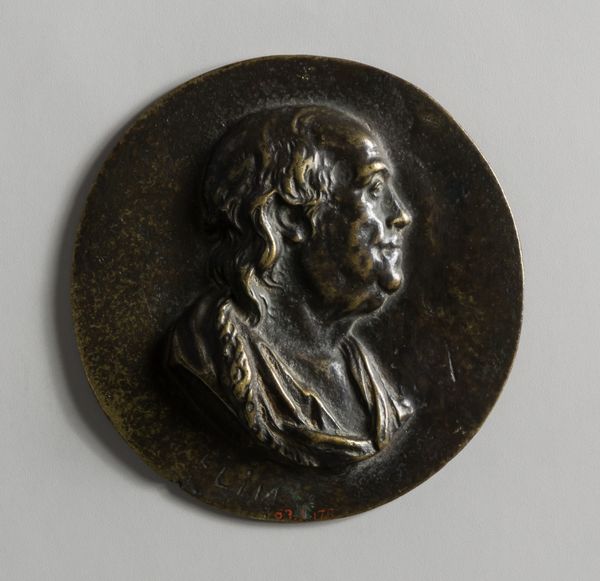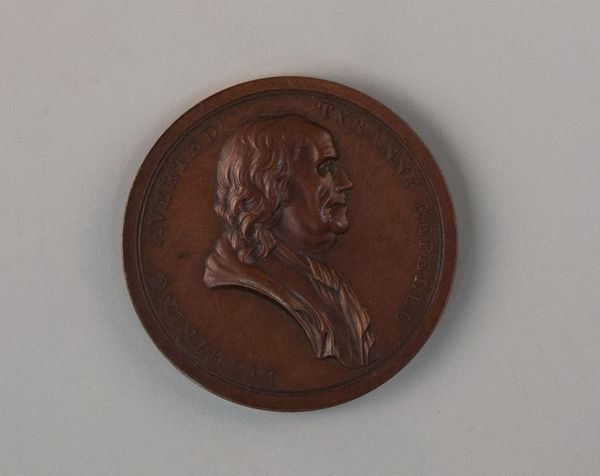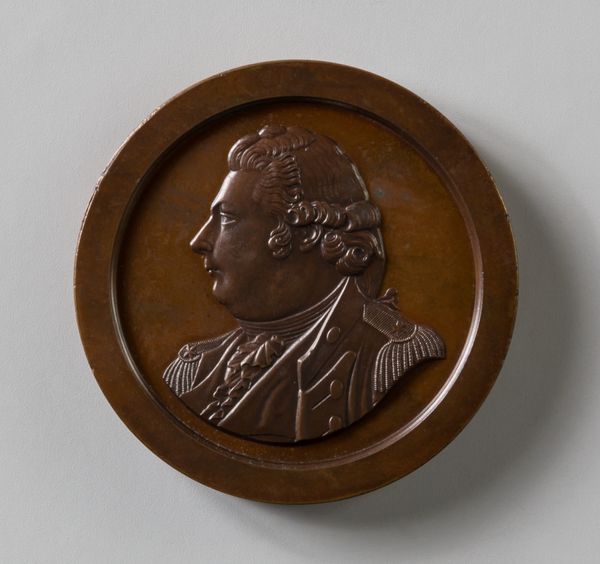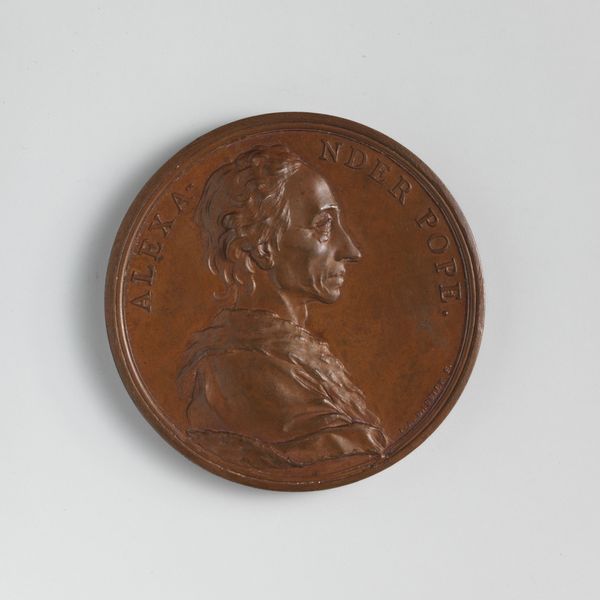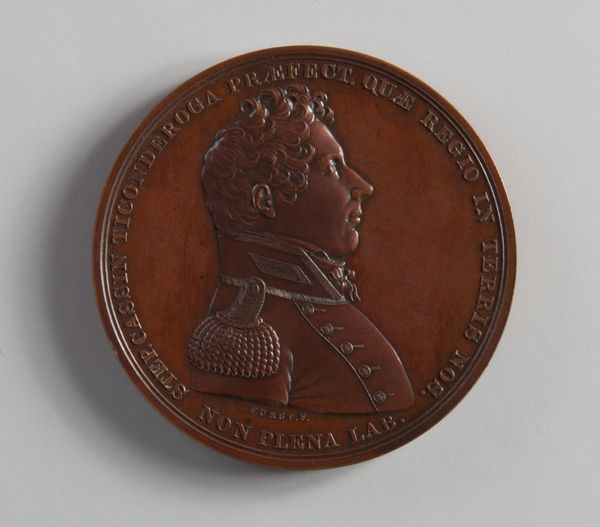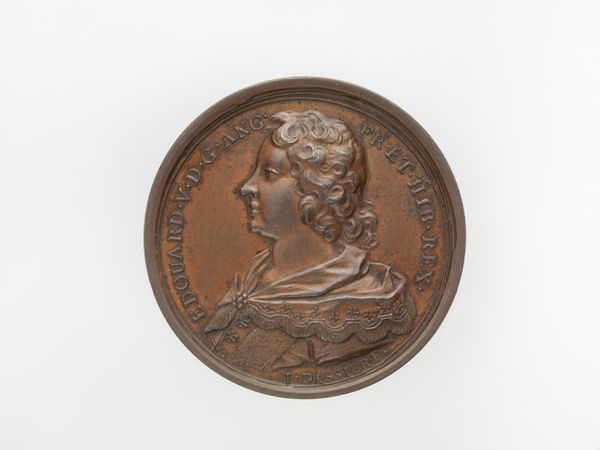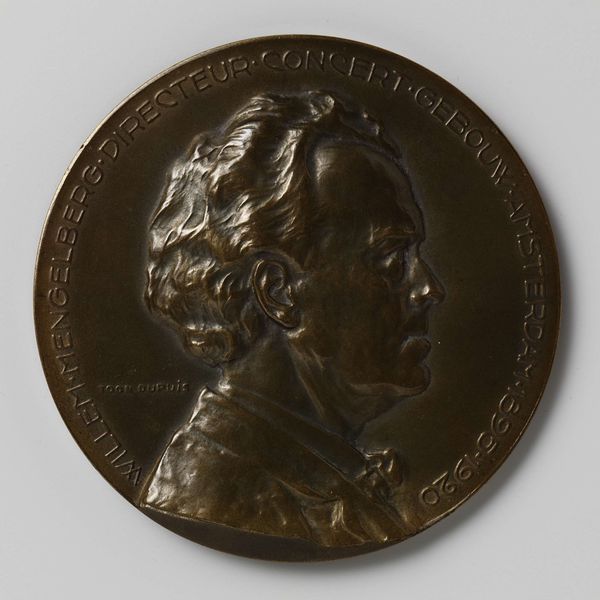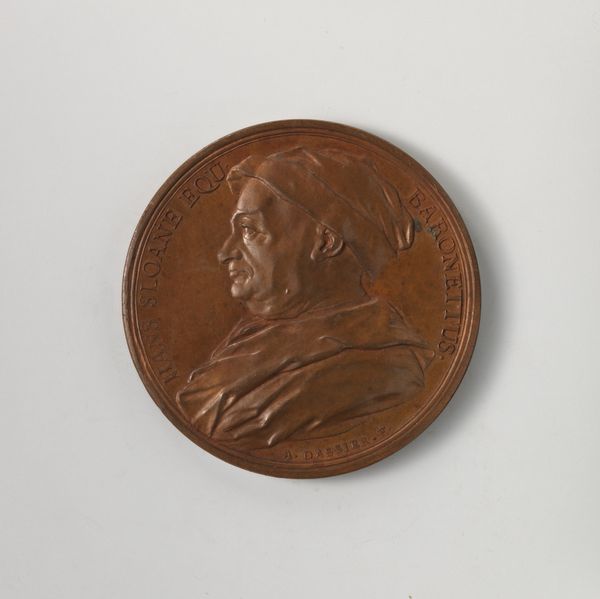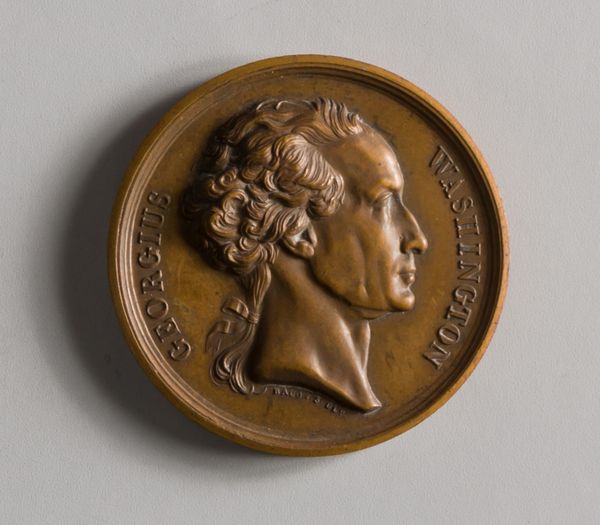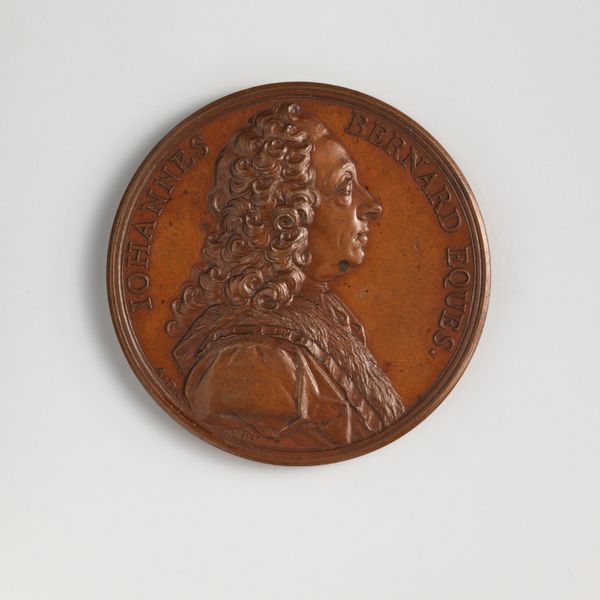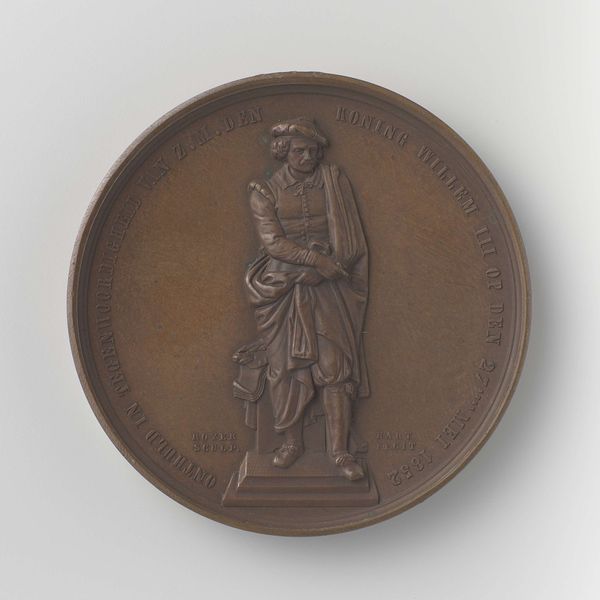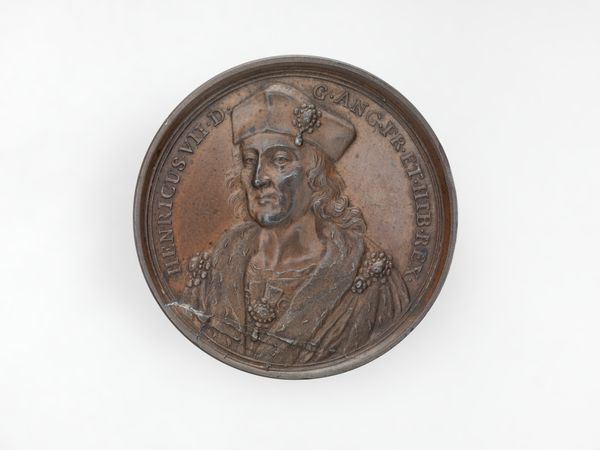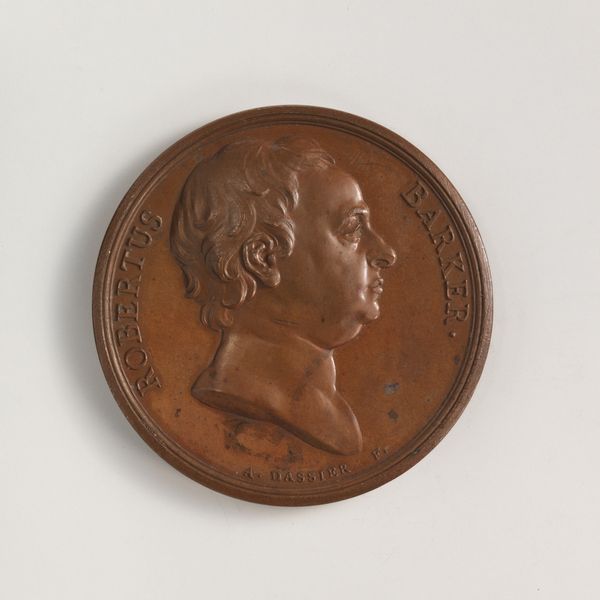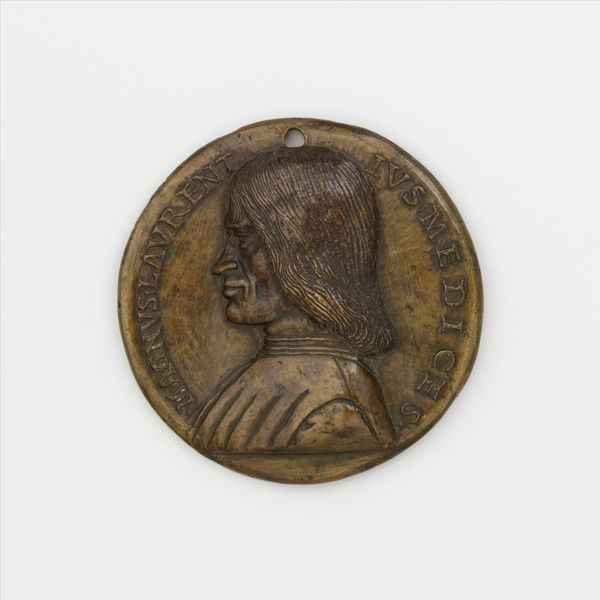
metal, bronze, sculpture
#
portrait
#
neoclacissism
#
metal
#
sculpture
#
bronze
#
sculpture
#
france
#
men
#
history-painting
#
profile
Dimensions: Diam. 2 3/4 in. (7 cm)
Copyright: Public Domain
Editor: So, this is a bronze medallion by Augustin Dupré, dating roughly from 1776 to 1883, currently at The Met. It presents a profile of a man, presumably important. There’s something very official about it, you know? Almost like a stamp. What stands out to you in this work? Curator: Its creation and existence are intrinsically linked to its material. Bronze isn’t just bronze; it’s a commodity, shaped by specific labor practices, smelting processes, trade networks. How do these economic forces inform the image presented? Is this a reflection of status achieved through labor? Or is the labor involved purposefully obscured to create the illusion of a natural leader? Editor: That's interesting, because it's also neoclassical in style. Was the bronze-casting process here especially valued, and if so, by whom? Curator: Exactly! Neoclassicism’s revival was itself heavily tied to emerging industrial capacities. Look at the relative ‘perfection’ they were trying to get using machine, using bronze’s easy capability of holding its shape.. the clean lines, the uniform surface… This level of finish wouldn't exist without very specific technological advancements shaping artistic choices. Also, who was depicted using this technique? The subject is portrayed like an ancient emperor—how does mass production of a bronze object democratize this kind of depiction, or, conversely, solidify existing power structures by presenting them in a familiar aesthetic framework, but as industrial product to possess? Editor: That really shifts how I see this medallion, understanding it's not just a portrait, but also a product of specific economic and industrial forces. Curator: Indeed. Examining the "how" and "why" of its material existence reveals so much about its historical moment. Editor: Absolutely! It makes you think about what it meant to own something like this then, compared to now.
Comments
No comments
Be the first to comment and join the conversation on the ultimate creative platform.
